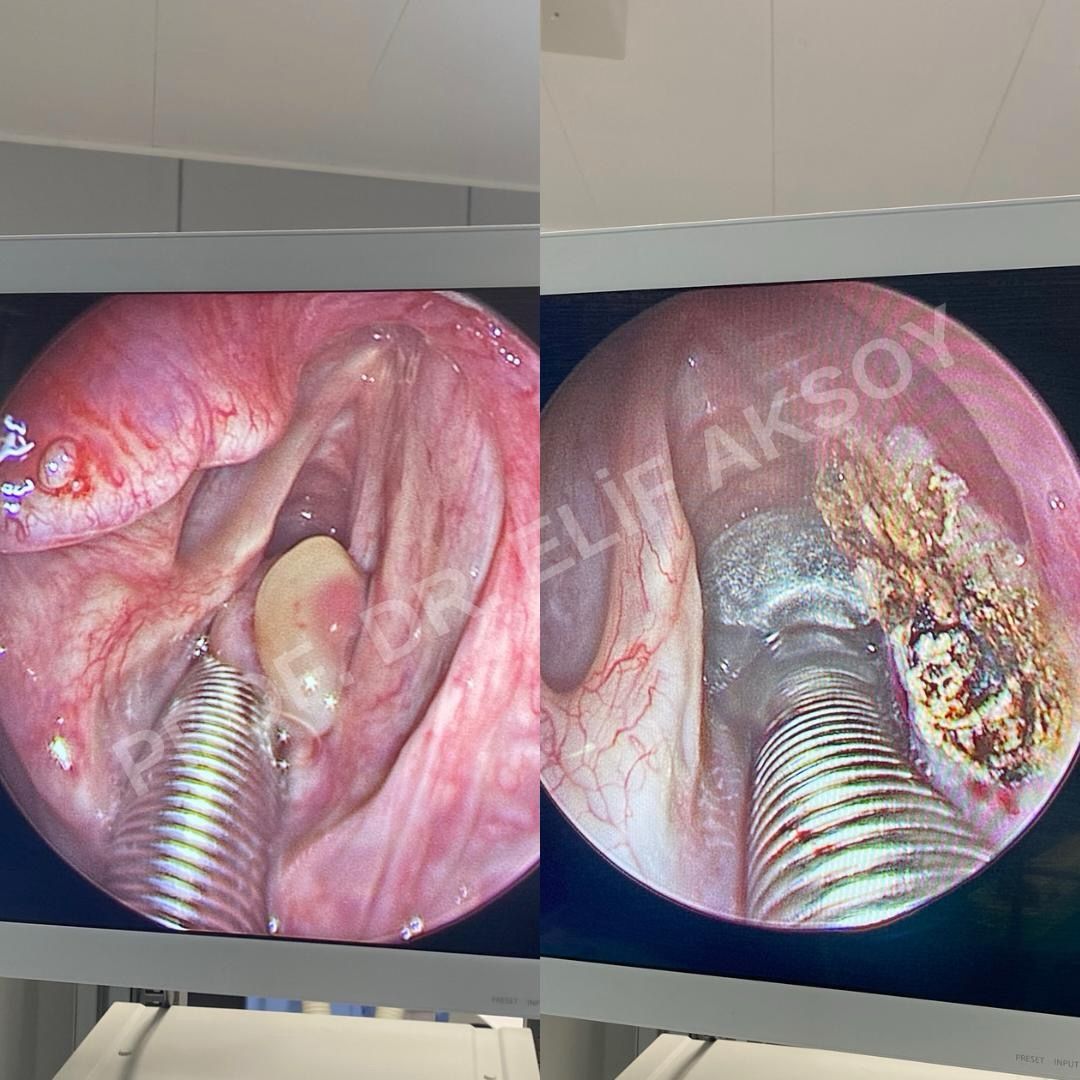Vocal Cord Granulomas
Vocal cord granulomas are inflammatory masses that typically develop on the vocal cords as a result of excessive irritation, trauma, or chronic inflammation. These formations are benign and can lead to symptoms such as hoarseness, a sensation of discomfort in the throat, and vocal fatigue.
Causes of Vocal Cord Granulomas
Vocal cord granulomas usually occur due to irritative factors or mechanical trauma. The most common causes include:
- Improper or excessive voice use: Constant shouting, speaking loudly, or singing
- Endotracheal intubation: Mechanical trauma caused by the placement of a breathing tube during surgery
- Laryngopharyngeal reflux (LPR): Irritation of the larynx area due to acid reflux
- Allergies and chronic irritation: Sensitization of the vocal cords due to smoking, air pollution, or dry air
Endolaryngeal laser surgery: Temporary carbon granulomas may occur after the removal of benign or malignant lesions via endolaryngeal laser surgery.
Symptoms of Vocal Cord Granulomas
Individuals with vocal cord granulomas may experience the following symptoms:
- Hoarseness and vocal fatigue
- Sensation of a foreign body in the throat (“something stuck” feeling)
- Discomfort or pain during speech
- Chronic need to clear the throat
- Stridor (a wheezing sound when breathing) in rare cases
How Is It Diagnosed?
- Laryngoscopy: Direct visualization of the vocal cords using an endoscopic camera
- Stroboscopy: Use of special lighting to examine the detailed movement of the vocal cords
- Reflux Tests: pH monitoring to evaluate whether stomach acid is damaging the vocal cords

Treatment of Vocal Cord Granulomas
- Voice Therapy: Recommended by speech therapists to promote correct voice use and avoid overuse.
- Reflux Treatment: Acid-suppressing medications (proton pump inhibitors – PPIs) and dietary changes can help control reflux.
- Steroids and Anti-inflammatory Medications: May be used to reduce inflammation.
- Laser or Surgical Intervention: If the granuloma is large and does not respond to other treatments, it can be removed surgically.
Conclusion
Vocal cord granulomas can generally be treated with vocal hygiene, reflux control, and voice therapy. If you are experiencing persistent hoarseness or a sensation of discomfort in your throat, it is best to consult an ENT specialist for early diagnosis and treatment.
Protect your vocal health and strengthen your vocal cords through proper voice use!


